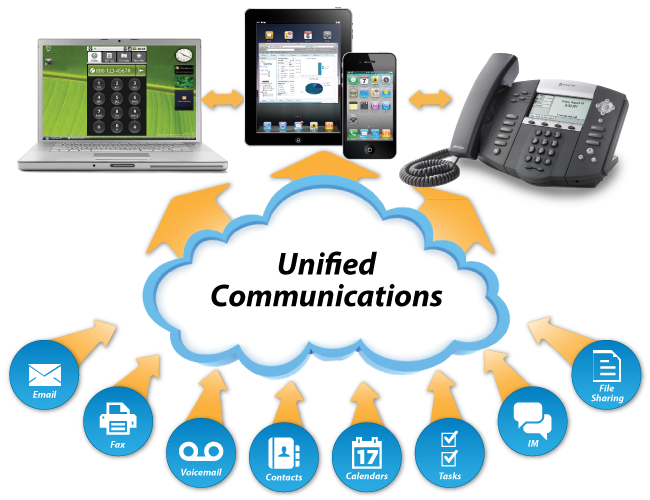telemedicine
See the following -
How mHealth Can Benefit Homeless Veterans
Homeless veterans would benefit from mHealth tools, including text, email and Internet services access, and support organizations focused on helping ex-military personnel with healthcare should tap such technologies to boost care and treatment, according to a new study...
- Login to post comments
How Mobile Apps Could Transform Rural Health Care
Rural residents seek services from primary care doctors and emergency rooms, which works if the patient doesn't have a chronic or life-threatening condition. But when they do, rural patients don't always have access to the most comprehensive care. [...] Read More »
- Login to post comments
How VA Is Driving Telemedicine
Telemedicine, or the broader term telehealth, allows patients to receive medical examinations from primary care physicians, consult with specialists, participate in one-on-one psychotherapy or counseling, and share diagnostic information using videoconferencing and other electronic communications tools. It has mainly been used to reach those who live in rural areas, but its influence is spreading. Read More »
- Login to post comments
Hundreds Of Thousands Of Medicare Recipients To Lose Telehealth Services
Realignment of census lines moves Medicare beneficiaries from rural to metropolitan Read More »
- Login to post comments
Hurricanes Harvey and Irma Draw the Line - Time for the US to Embrace Open Source Emergency and Disaster Response
 For nearly 20 years now the global open source community and applications have been a keystone to disaster relief efforts around the world. The enormous number of disaster relief applications and knowledge that has been developed through all these years, should, and needs to be leveraged in the current crisis. For that reason, Open Health News is starting a series of articles to highlight some of the most important solutions. A substantial portion the open source applications for emergency and disaster response that exist are actually already on the news website in the form of articles and resource pages.
For nearly 20 years now the global open source community and applications have been a keystone to disaster relief efforts around the world. The enormous number of disaster relief applications and knowledge that has been developed through all these years, should, and needs to be leveraged in the current crisis. For that reason, Open Health News is starting a series of articles to highlight some of the most important solutions. A substantial portion the open source applications for emergency and disaster response that exist are actually already on the news website in the form of articles and resource pages.
- The Future Is Open
- Login to post comments
IBM's Reinvention Should Inspire Flat Pharma Businesses
The pharmaceutical giants look remarkably similar to the IBM of the late 80′s and early 90′s. For those of us who remember the IBM of that era, this is bad news. Read More »
- Login to post comments
In-Depth: How Patient Generated Health Data Is Evolving Into One Of Healthcare’s Biggest Trends
What patient generated data used to be and why it is increasingly important Read More »
- Login to post comments
Indian Healthcare Industry Prescribing A Dose Of Technology
Max Healthcare which has been at the forefront of delivering healthcare services in Delhi-NCR has moved to an Electronic Health Records (EHR) system from their existing Hospital Information System (HIS). The group implemented an open source EHR system, WorldVistA, with the goals of minimizing the need for paper records, allowing order entry by the doctors in the system itself, and enabling easy access to patient records. The system was hosted on a private cloud and was interfaced with laboratory, radiology and pharmacy to allow real-time access to any patient record.
- Login to post comments
Indiana University Aims to Adapt VA Telehealth Network to Treatment of Brain Injuries
Researchers from Indiana University Medical Center and the Department of Veterans Affairs will be looking at how to adapt the VA’s extensive telemedicine network to assess and treat veterans with mild traumatic brain injuries. Mobile technologies likely will be a key part of the process. Read More »
- Login to post comments
Instead of Medicare for All, How about VA for All?
 I wonder -- why would people be calling for a new system that would still have thousands of private hospitals/facilities and millions of healthcare professionals, practicing FFS medicine using countless systems and data structures? In short, why aren't people calling for VA for All? Like Medicare, the VA -- more especially, its healthcare component, the Veterans Health Administration -- is charged with providing healthcare to a designed population, in this case, veterans. Unlike Medicare, though, it does so as an integrated health system (by far the largest in the U.S.), with 170 VA Medical Centers, over a thousand outpatient facilities, and somewhere over 100,000 physicians...it offers some of the finest care in the world. It offers a range of services that Medicare can only dream of, and it does so at, it is believed, lower costs than private coverage or even Medicare. Plus, it also was an innovator in electronic health records and is today in telehealth. What's not to like?
I wonder -- why would people be calling for a new system that would still have thousands of private hospitals/facilities and millions of healthcare professionals, practicing FFS medicine using countless systems and data structures? In short, why aren't people calling for VA for All? Like Medicare, the VA -- more especially, its healthcare component, the Veterans Health Administration -- is charged with providing healthcare to a designed population, in this case, veterans. Unlike Medicare, though, it does so as an integrated health system (by far the largest in the U.S.), with 170 VA Medical Centers, over a thousand outpatient facilities, and somewhere over 100,000 physicians...it offers some of the finest care in the world. It offers a range of services that Medicare can only dream of, and it does so at, it is believed, lower costs than private coverage or even Medicare. Plus, it also was an innovator in electronic health records and is today in telehealth. What's not to like?
- Login to post comments
Is Cloud Faxing the Solution to the Health IT Usability and Interoperability Crisis?
 The Healthcare industry is in profound crisis as the HITECH Act of 2009 led medical facilities across the United States to spend in excess of $3 trillion on the purchase and implementation of expensive electronic health records (EHRs) under the Meaningful Use program. Yet, the most fundamental goals of electronic records Nirvana that were promised have not been achieved. For multiple reasons, EHRs have turned out to lack usability and be non-interoperable. In fact, most monopoly EHR vendors are engaged in what is commonly called “data blocking.” In most cases physicians are unable to obtain medical records for the patients they are seeing and patients have a hard time getting a hold of their own medical records. That means that the medical records are not available at the most important moment, the caregiver/patient encounter, and are not available to the patients themselves and their family members.
The Healthcare industry is in profound crisis as the HITECH Act of 2009 led medical facilities across the United States to spend in excess of $3 trillion on the purchase and implementation of expensive electronic health records (EHRs) under the Meaningful Use program. Yet, the most fundamental goals of electronic records Nirvana that were promised have not been achieved. For multiple reasons, EHRs have turned out to lack usability and be non-interoperable. In fact, most monopoly EHR vendors are engaged in what is commonly called “data blocking.” In most cases physicians are unable to obtain medical records for the patients they are seeing and patients have a hard time getting a hold of their own medical records. That means that the medical records are not available at the most important moment, the caregiver/patient encounter, and are not available to the patients themselves and their family members.
- The Future Is Open
- Login to post comments
IU Scientist to Lead Study on the Use of Telehealth to Assist Veterans with Mild Brain Injury
An Indiana University researcher has received a grant from the U.S. Department of Veterans Affairs to develop a new assessment mechanism that will improve long-distance care for military veterans with mild traumatic brain injury. The system will be piloted at five hospitals serving veterans and active-duty soldiers in the South and Midwest, including the Walter Reed National Military Medical Center in Bethesda, Md.
- Login to post comments
Kenya Rolls Out Open-Source e-Health System
An open source software e-health system being used in Kenya’s public hospitals since February has drastically cut costs and should pave the way for the model to be replicated in other East African countries. Read More »
- Login to post comments
Managing and Implementing Remote Patient Device Data in the EHR
 These were the first words spoken over the telephone by inventor Alexander Graham Bell on March 10, 1876. According to popular legend, this call was also the first time the telephone was used to summon help, as Bell had just spilled acid.1 In a way, we can look back on this incident as prophetic, with the advent of telemedicine capabilities. Today, remote patient monitoring encompasses various audio, video, and augmented reality-related technologies and processes used for health information exchange between a patient and physician system. This is also sometimes called “connected health”...
These were the first words spoken over the telephone by inventor Alexander Graham Bell on March 10, 1876. According to popular legend, this call was also the first time the telephone was used to summon help, as Bell had just spilled acid.1 In a way, we can look back on this incident as prophetic, with the advent of telemedicine capabilities. Today, remote patient monitoring encompasses various audio, video, and augmented reality-related technologies and processes used for health information exchange between a patient and physician system. This is also sometimes called “connected health”...
- Login to post comments
ManTech Awarded $20.5 Million To Support AHLTA For The DoD
The TriCare Management Activity (TMA) Contract Operations Division (COD) has awarded Evolvent Technologies...a contract to provide new development and sustainment support for the AHLTA-Theater application to include code optimization, database conversion, capability and new feature additions, mobile computing enhancements, and code upgrades. Read More »
- Login to post comments